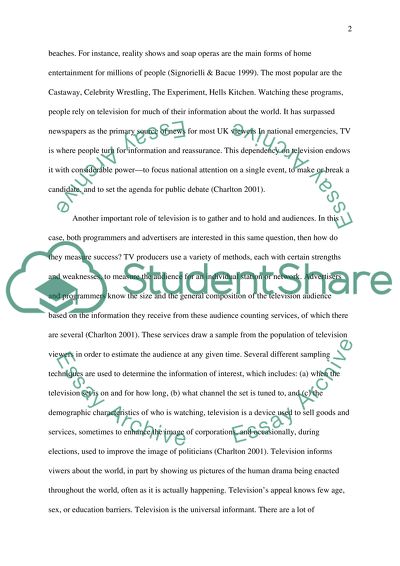Cite this document
(The Role of Television in the UK Essay Example | Topics and Well Written Essays - 1750 words, n.d.)
The Role of Television in the UK Essay Example | Topics and Well Written Essays - 1750 words. https://studentshare.org/media/1542846-explain-your-view-of-the-role-of-television
The Role of Television in the UK Essay Example | Topics and Well Written Essays - 1750 words. https://studentshare.org/media/1542846-explain-your-view-of-the-role-of-television
(The Role of Television in the UK Essay Example | Topics and Well Written Essays - 1750 Words)
The Role of Television in the UK Essay Example | Topics and Well Written Essays - 1750 Words. https://studentshare.org/media/1542846-explain-your-view-of-the-role-of-television.
The Role of Television in the UK Essay Example | Topics and Well Written Essays - 1750 Words. https://studentshare.org/media/1542846-explain-your-view-of-the-role-of-television.
“The Role of Television in the UK Essay Example | Topics and Well Written Essays - 1750 Words”. https://studentshare.org/media/1542846-explain-your-view-of-the-role-of-television.


